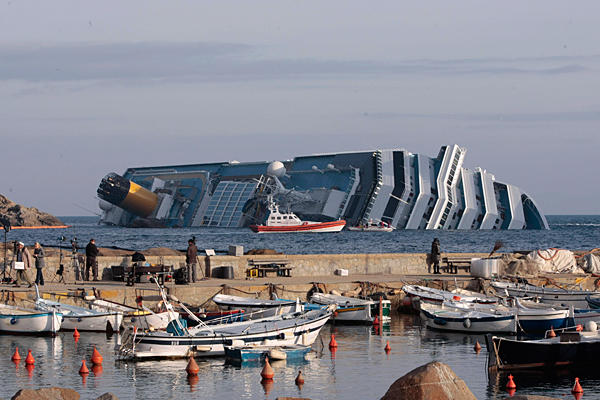An Italian prosecutor demanded from a court on Monday to put to jail Francesco Schettino, the captain of the Costa Concordia, for more than 26 years for his part in the 2012 accident that claimed the life of 32 people. The ill-fated cruise liner came very close to the shore and bumped into rocks near the Tuscan holiday island of Giglio.
 In the process of gathering proof at the trial in the vicinity of Grosetto, Prosecutor Maria Navarro stated the captain should be sentenced to 14 years for manslaughter and producing damages, 9 years for producing a shipwreck, 3 years for leaving the ship and an additional three months for giving wrong attestations. The trial was anticipated to proceed to jury next month.
In the process of gathering proof at the trial in the vicinity of Grosetto, Prosecutor Maria Navarro stated the captain should be sentenced to 14 years for manslaughter and producing damages, 9 years for producing a shipwreck, 3 years for leaving the ship and an additional three months for giving wrong attestations. The trial was anticipated to proceed to jury next month.
According to the prosecutor, the accused should be put to jail straight away because of the chance he would attempt to escape from the country. In Italy most of the accused were left free awaiting appeals trials.
Over 4,000 passengers and crew were on board the vessel when it turned over, causing a chaotic rescue during the night. The ship lied in water partially sunk near the port of Giglio for more than two years. After that, the remains of the ship were pulled over last year in one of the most complex maritime salvages in the history.
The region of Tuscany and the island of Giglio were in search of 220 million euros ($247 million) in harms from Costa Cruises, an affiliate of Carnival Corp because of the negative aftermath the event had on tourism. Costa Cruises escaped a criminal trial in the case by conceding to give a 1 million euro penalty to Italy last year. It argued it would give thousands of euros for the harms of the survivors.
The captain arouse mocking in Italy for leading Concordia very close to the shore in an ill-destined movement of the ship known as a “salute” and leaving the vessel before all the survivors were saved. An Italian coastguard officer was recorded crying at Schettino in a talk over the cell phone, saying to him to return to the vessel. That words “Get back on board, damn it!” were spread over the internet and put on T-shirts, costing $1 (equal to 0.8906 euros).